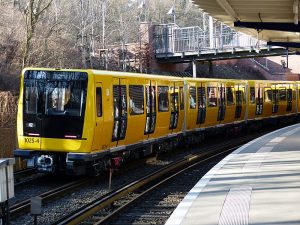 In an open letter, UITP is calling the European Union to support the survival of urban public transport in the post coronavirus period, as progressive resumption of the services is taking place and the operators will face new and critical challenges.
In an open letter, UITP is calling the European Union to support the survival of urban public transport in the post coronavirus period, as progressive resumption of the services is taking place and the operators will face new and critical challenges.
The sector will face complex challenges as the operators will have to adapt to the phasing out of travel restrictions and phasing in of various types of activities while the trust in public transport must be rebuild in the post-COVID-19 period.
The open letter sent to the EU highlights the current situation in three parts.
UITP say that concerns related to the progressive resumption of the public transport in the post coronavirus must be addressed. Though the pandemic is still active, it is important to anticipate the progressive lifting of the lockdown and prepare to swiftly resume operations in due time. However, many issues will have to be addressed before public transport services can be operated in full capacity to answer the demand for mobility. These include rules on the wearing of masks, social-distancing, protecting workers and communicating with passengers.
The second section focuses on the urgent measures that need to be adopted at the EU level in order to preserve the public transport ecosystem. The first available data, from various European Member States, show that the passenger transport sector’s ecosystem will be heavily affected. The impact relates not only to the decrease in farebox revenues, but the additional costs needed to implement the necessary measures in public transport vehicles and infrastructure.
In order to limit the social, economic and financial consequences, exceptional targeted measures will need to be adopted at the EU level and rapidly deployed.
The association underlines the essential role of a substantial EU financing and grants to the public transport sector to overcome the recession and ensure at least the pre-crisis levels of services. “This refers not only to the mid-term, post-lockdown perspective, but also to the long-run sustainability ambitions foreseen by the European Green Deal,” the open letter says.
The third section focuses on strongly reaffirming the need to strengthen the Green Deal objectives in the face of environmental concerns as climate change must stay high on the political agenda. Public transport is and will be a key sector for both the economic recovery and the achievement of the Green Deal objectives.
The European Green Deal remains Europe’s most important sustainable growth strategy. Thus, given the economic consequences that the sustainable public transport sector is facing due to the crisis, it is vital that the EU prioritise political and financial support for sustainable urban modes of transport.
Share on:



